Family Faith Formation
Welcome to The Unitarian Church in Westport! As Unitarian Universalists, we believe that learning is a life-long journey. We ask the big questions that challenge us to grow, and we embrace the mysteries that encourage us to accept one another and view all life as a gift for which we are grateful.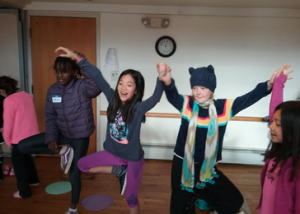
Unitarian Universalists believe that young people discover best by exploring their own current lives and experiences. In so doing, they learn to confront problems directly; to communicate in ways that express emotional needs and desires; to share and resolve altercations; to solve puzzles and mysteries; to figure out how things work and what it is that stimulates their senses. Our programs help support this exploration process.
These are the insights and lessons that prepare the way for moralistic perspectives that are the foundation of spiritual development, and the seeds of religious sentiment. In the words of the famous Unitarian religious educator, Sophia Lyons Fahs: “What [children] need first is to notice for themselves, and have many opportunities to learn their own firsthand direct relations with their universe. They need to notice for themselves what belongs to God before someone has told them.”
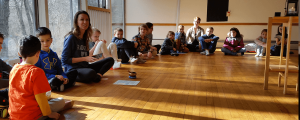
Unitarian Universalists believe that young people, and adults as well, can learn that there are many cultures and faith traditions throughout the world with their own ways of living and being. Each has value, as all people do. Our challenge is to demonstrate to our children and youth the ways in which the world’s peoples are similar, and to view our differences from a positive perspective, not one that divides. Listening and learning from each other fosters community-oriented, open-minded, sympathetic individuals who celebrate diversity in all forms.
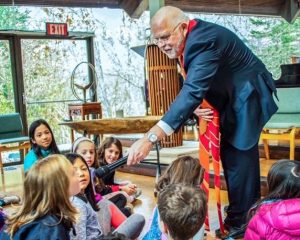 Unitarian Universalists believe that a young person’s moral and spiritual development is a dynamic process connected to her or his emotional and experiential understandings. We acknowledge this and encouraging wonder and questions.
Unitarian Universalists believe that a young person’s moral and spiritual development is a dynamic process connected to her or his emotional and experiential understandings. We acknowledge this and encouraging wonder and questions.
Our Promises to Each Other and Ourselves
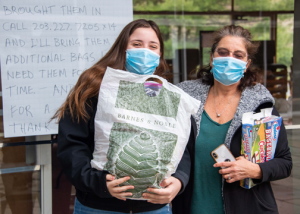 As part of our programs, we make thoughtful promises to each other and ourselves. We understand that as we evolve, so may our promises. Our promises, today:
As part of our programs, we make thoughtful promises to each other and ourselves. We understand that as we evolve, so may our promises. Our promises, today:
- Explore and question your experiences in order to make meaning emotionally with your life. Your feelings matter, and they are the seeds of religious sentiment and spiritual depth.
- Respect your parents and caregivers for they do their best to provide for you and take care of you.
- Practice good manners. Learning to say ‘please’ and ‘thank you’ helps to cultivate a healthy community of friends, family, and acquaintances. If you are nice to even those people who make you uncomfortable, and if you check up on them when they are hurt or sad or angry, you will have a large network of friends who will support you and help you.
- Be a thoughtful helper. Remember to pick up after yourself, to help with chores at home, at school, or wherever you leave your footprints. This encourages responsibility for caring for your environment and your community, indeed your only planet, and fosters a sense of civic duty.
- Try hard to do well in school. Working hard to challenge yourself intellectually stimulates creativity, and helps you to live a well-examined life.
- Treat each other with respect and consideration. You never know how far the ripples of your kindness, or your opposing cruelty, may affect others.
- Be a good neighbor and offer your services to your community. Not all are as fortunate as you, and there will be times when others can benefit from your kindness. Be attentive to such moments. It feels good to do something nice for other people in need. Be sure to ask first. Try not to assume that your needs are the same as others’.
- Take care of your body. You only have one, and it will not last forever. It is your responsibility to be as nice as you can to your body, and to remember that much of your learning takes place through your body.
UU Seven Principles, Adapted for Children
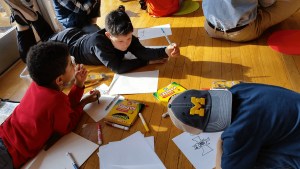 Unitarian Universalists have many ways of articulating our seven Principles in simpler language. Here’s the way our Tapestry of Faith children’s programs describe them:
Unitarian Universalists have many ways of articulating our seven Principles in simpler language. Here’s the way our Tapestry of Faith children’s programs describe them:
1st Principle: We believe that each and every person is important.
2nd Principle: We believe that all people should be treated fairly and kindly.
3rd Principle: We believe that we should accept one another and keep on learning together.
4th Principle: We believe that each person must be free to search for what is true and right in life.
5th Principle: We believe that all persons should have a vote about the things that concern them.
6th Principle: We believe in working for a peaceful, fair, and free world.
7th Principle: We believe in caring for our planet Earth, the home we share with all living things.

